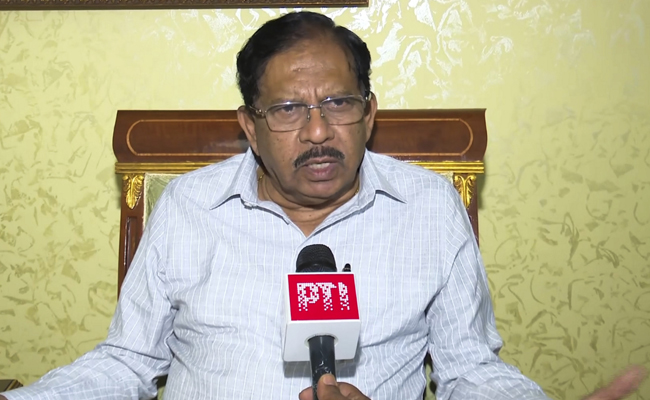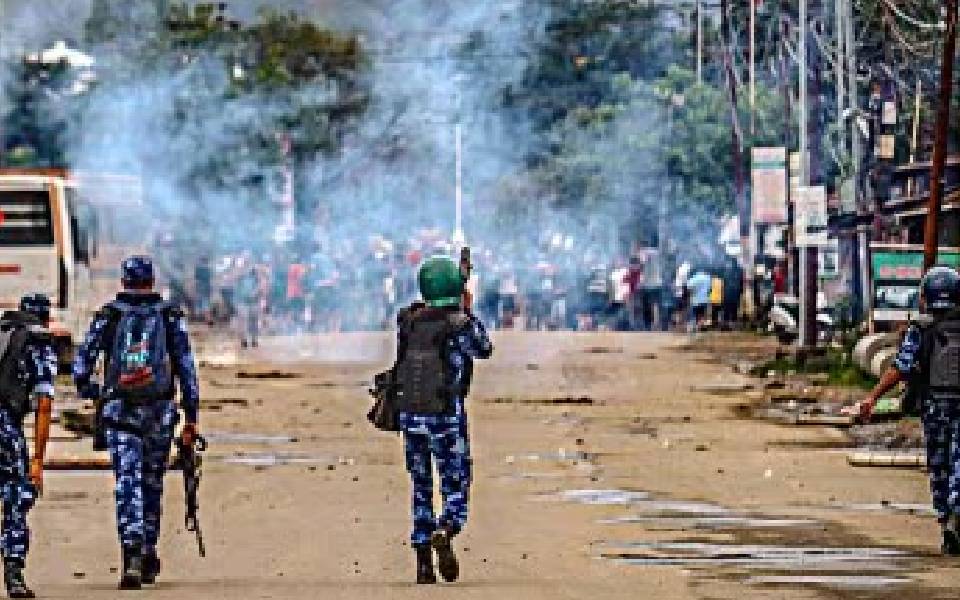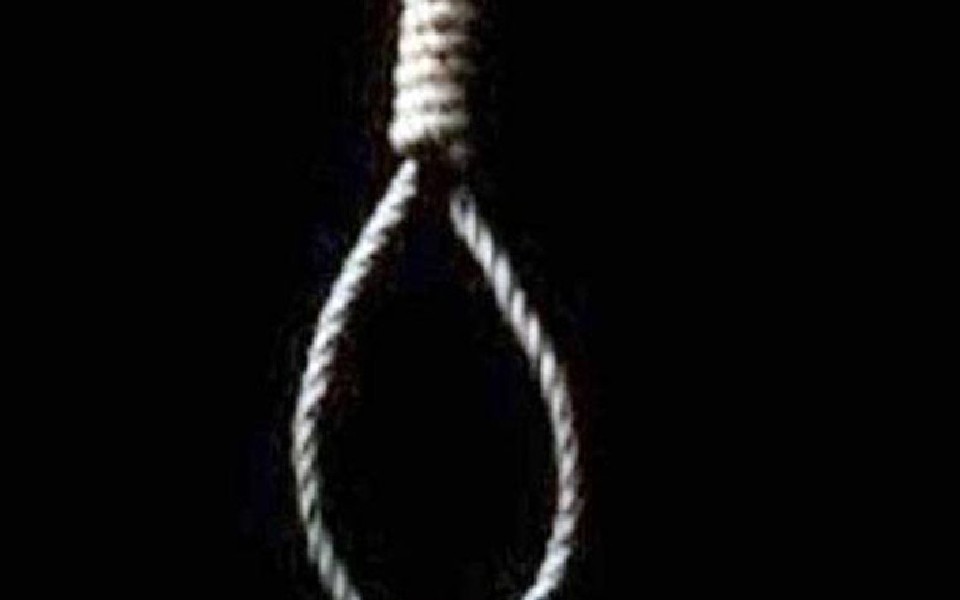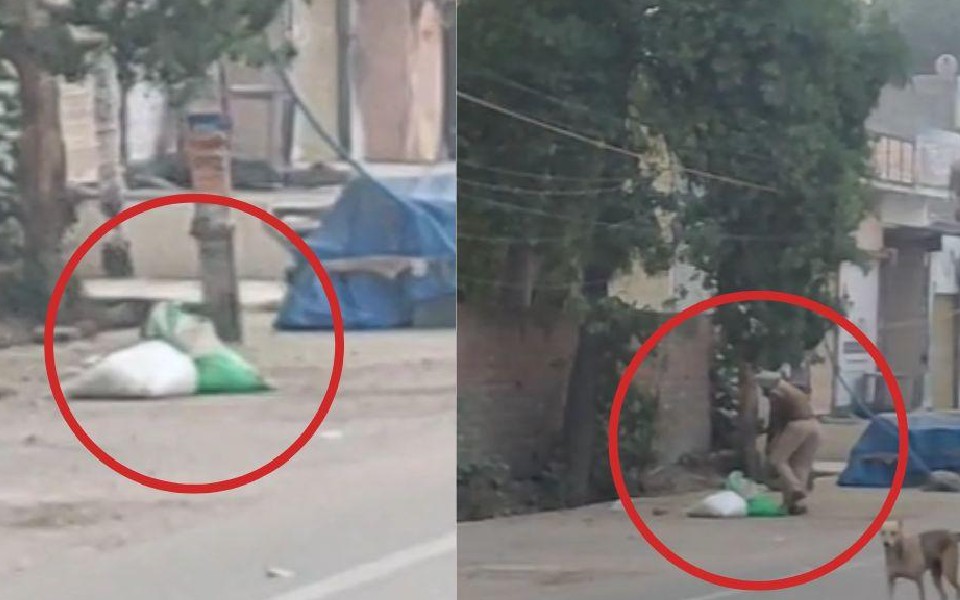Bengaluru: "It’s not just the Hubballi case that has been withdrawn. Cases involving protests by farmers, students, and the general public have also been withdrawn," clarified Home Minister G. Parameshwara.
Speaking to reporters near his residence in Sadashivanagar, he said, "We have followed legal procedures in withdrawing the cases. If the court agrees, they will be dropped; otherwise, the cases will proceed."
He added, "We had 56 cases before us, and we have withdrawn 43 of them. These cases are not exclusively related to minorities; they include cases of protests by farmers, students, and the general public at different times. All of these cases have been withdrawn. Had we withdrawn only the Hubballi case or if all 43 cases were solely related to minorities, the BJP's allegations would have some merit. But that’s not the case; we have to look at everything with equality."
He explained that there is a set procedure for withdrawing cases. "Some have filed petitions alleging false cases, or that the applicable sections were not added, or that incidents were misrepresented. To review such petitions, a subcommittee has been formed, typically chaired by the Home Minister. We forward the petitions to the relevant department, which reviews FIRs registered at police stations and examines any flaws in evidence collection. These findings are then brought before the subcommittee."
He mentioned that the subcommittee is currently discussing the cases, including the Hubballi case, where a petition was also submitted. "It was discussed that there was no need to file cases against so many people, and the decision to withdraw the cases was made in a Cabinet meeting."
Responding to BJP's criticism, Parameshwara said, "Even when they were in power, BJP did the same in several cases. In BJP-ruled states, similar actions have been taken. For instance, Uttar Pradesh Chief Minister Yogi Adityanath had cases against him, which were withdrawn while he was in office."
Regarding Rahul Kharge’s decision to return the Siddharth Trust land, he said, "We obtained the land without violating any laws, but since they’ve accused us, we’ve returned it. BJP sees everything through biased eyes, much like jaundice making everything appear yellow."
Let the Truth be known. If you read VB and like VB, please be a VB Supporter and Help us deliver the Truth to one and all.
Imphal, Nov 24: The autopsy reports of three of the six persons killed in Manipur's Jiribam district by suspected Kuki militants revealed multiple bullet injuries and lacerations on various parts of their bodies, officials said on Sunday.
The report of three-year-old Chingkheinganba Singh showed that his right eye was missing and he had a bullet wound in the skull, they said.
The report also noted cut wounds, fractures in the chest, and lacerations on the forearm and other parts of his body. Signed on November 17, the report indicated that the child's body was in a "state of decomposition", they added.
The report said the cause of death would be pending until the receipt of the chemical analysis report of viscera from the Directorate of Forensic Sciences in Guwahati, officials said.
The post-mortem examinations were conducted at the Silchar Medical College Hospital (SMCH) in Assam's Cachar district.
The report also detailed the injuries sustained by his mother, L Heitonbi Devi (25), who had "three bullet wounds in the chest and one in the buttock", officials said.
According to the report, her body was brought to SMCH on November 18, around seven days after her death, they said.
The child's grandmother, Y Rani Devi (60), suffered five bullet wounds -- one in the skull, two in the chest, one in the abdomen, and one in an arm, officials said.
Her body was brought to SMCH on November 17, at least three to five days after her death, the report noted.
The autopsy reports also showed deep lacerations on many parts of the bodies of the two women.
The cause of Rani Devi's death is also yet to be known, awaiting the chemical analysis report of the viscera, officials said.
The post-mortem reports of one more woman and two children are still pending, they said.
The six persons belonging to the Meitei community had gone missing from a relief camp in Jiribam after a gunfight between security forces and suspected Kuki-Zo militants that resulted in the deaths of 10 insurgents on November 11.
Their bodies were found in the Jiri river in Jiribam district, and the nearby Barak river in Assam's Cachar over the next few days.





